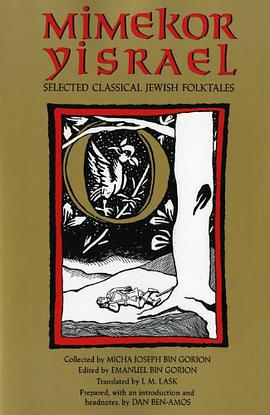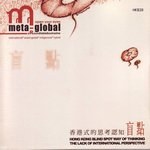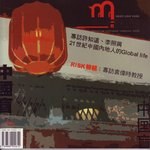

具体描述
"Imperialism in Southeast Asia" examines its subject against a backdrop of those countries that could at a given time be called imperialist: Britain, France, Spain, the Netherlands and the US. Examining the imperialist phenomenon from this wide-ranging perspective reveals imperialism as driven by rivalry; it also facilitates comparison: imperialism has elements in common, yet differs according to the territory in which it operates. This is one of the few studies of imperialism to concentrate on Southeast Asia. Nicholas Tarling's definition of imperialism focuses on the establishment of political control from 1870 to 1914. Moving forward in time, the author analyses attempts to re-establish control after the overthrow of imperial regimes in the Second World War. Most recently, Southeast Asia has become a region of independent states, and Tarling discusses imperial ventures as forms of state-building. At the same time, his discussion reflects another contemporary concern-globalisation and the relationship of the state to that process. Nicolas Tarling is an eminent writer in Asian history. His latest book will be of great interest to all those studying or involved in Asian studies, history and politics.
作者简介
目录信息
读后感
评分
评分
评分
评分
用户评价
阅读体验上,这本书的节奏掌控得非常精妙,它不像有些学术著作那样晦涩难懂,反而有一种近乎文学作品的流畅感和张力。作者对史料的运用达到了炉火纯青的地步,那些从档案深处挖掘出来的私人信件、日记片段,如同碎片化的记忆碎片,被有机地编织进宏大的历史叙事之中。我尤其赞叹作者对“感知”层面的捕捉能力,殖民者如何看待当地的“异域风情”,以及被殖民者又如何反过来审视和解构这些凝视,这种双向的目光交错,构成了全书最引人入胜的智力迷宫。书中对特定文化符号(比如某种服饰、某种宗教仪式)在殖民冲击下如何被扭曲、挪用乃至重生的分析,极其深刻。它迫使读者跳出既有的文化优越感陷阱,去理解历史事件是如何在不同意识形态的熔炉中被重新塑造的。坦率地说,这本书读起来需要一定的专注力,但它所给予的回报是巨大的——它打开了一扇通往理解人类复杂适应性和文化韧性的后窗。
评分这本书的叙事视角简直令人耳目一新,它没有沉湎于传统史学中那种宏大叙事的窠臼,而是深入到东南亚各个角落的微观历史切片中去。我特别欣赏作者如何巧妙地将殖民权力结构对当地社会肌理的渗透,通过一些看似寻常的生活细节展现出来。比如,书中对橡胶种植园工人日常劳作的细致描摹,那些汗水、饥饿与反抗的微小火花,比任何政治宣言都更有力量地揭示了剥削的本质。作者对地方精英与殖民者之间复杂共谋关系的探讨,更是鞭辟入里,让人不得不重新审视“合作”与“抵抗”的传统二元对立。我感觉自己仿佛置身于那些潮湿、闷热的殖民地城镇中,亲眼目睹了不同文化和利益集团的碰撞、融合与撕裂。它不是一本简单的年代史,而更像是一部关于权力、身份认同以及空间改造的社会人类学文本,充满了令人不安却又引人入胜的张力。读完之后,我对“现代化”在殖民语境下的复杂含义有了更深层次的理解,那是一种伴随着巨大代价和深刻创伤的重塑过程。
评分这本书的理论框架构建得扎实而富有创造性,它成功地避免了落入区域研究中常见的“民族志陷阱”,即过分强调地方特殊性而忽略了全球性的宏观联系。作者巧妙地引入了后殖民理论中的“间隙空间”(liminal space)概念,来描述东南亚在东西方权力交汇点上所呈现出的那种持续的、动态的不确定性状态。这种理论的运用使得分析不再是简单的“谁对谁错”的道德判断,而是转向了对权力运作机制的结构性剖析。书中对经济地理学的整合也令人印象深刻,如何通过对港口建设、铁路铺设的考察,来揭示资本逻辑如何地理化地重塑了政治权力版图。我仿佛看到那些看不见的经济脉络,如何像蜘蛛网一样,将各个岛屿和内陆地区紧密地连接起来,同时也成为了新的束缚。这种多学科交叉的取径,使得论证的力量倍增,让历史分析拥有了近乎物理学的精确感。
评分这本书的语言风格有一种沉静的力量,它不像某些畅销书那样追求煽情和戏剧性,而是以一种近乎冷峻的、学者的克制来叙述那些充满血与泪的历史事件。正是这种克制,反而让文字的重量更足。我喜欢作者在处理复杂族群矛盾时所展现出的那种高度的道德敏感和智识的审慎。例如,在分析某个地区数十年间的宗教冲突演变时,作者没有简单地归咎于宗教本身,而是细致地梳理了殖民当局如何利用和加剧了宗教差异,以达到分而治之的目的。书中对“基础设施的政治”的分析尤其精彩,那些被视为中立的道路、桥梁,在书中被解构成了帝国控制和资源攫取的工具。读完后,我感觉自己对“进步”这个词汇的理解被彻底颠覆了。这本书提供了一种极其宝贵的视角:要理解今天的东南亚,就必须深入其被殖民历史的肌理之中,去感受那些看似微不足道的制度和空间安排,是如何塑造了今日的权力格局与人民命运的。
评分从阅读的愉悦感和知识的冲击力来看,我给这本书极高的评价,但必须承认,它的某些论断是相当“反直觉”的。作者毫不留情地揭示了那些在独立运动中被浪漫化的英雄人物背后的复杂动机与妥协,指出“解放”本身往往也是一种新的、更精巧的权力构建过程。这种对历史人物和事件进行“去神圣化”的处理方式,对于习惯了传统民族史的读者来说,无疑是一种挑战。我特别欣赏作者对“记忆政治”的探讨,即不同世代如何通过选择性地遗忘和重述历史,来巩固现有的国家叙事。书中对战争遗留问题、种族冲突根源的溯源,都指向了殖民遗产的幽灵依然在当代政治中游荡的事实。这本书的价值不在于提供慰藉,而在于提供一种更清晰、尽管有时更残酷的现实图景,让人意识到历史的伤口从未真正愈合,只是换了一种方式存在。
评分 评分 评分 评分 评分相关图书
本站所有内容均为互联网搜索引擎提供的公开搜索信息,本站不存储任何数据与内容,任何内容与数据均与本站无关,如有需要请联系相关搜索引擎包括但不限于百度,google,bing,sogou 等
© 2026 book.wenda123.org All Rights Reserved. 图书目录大全 版权所有




















